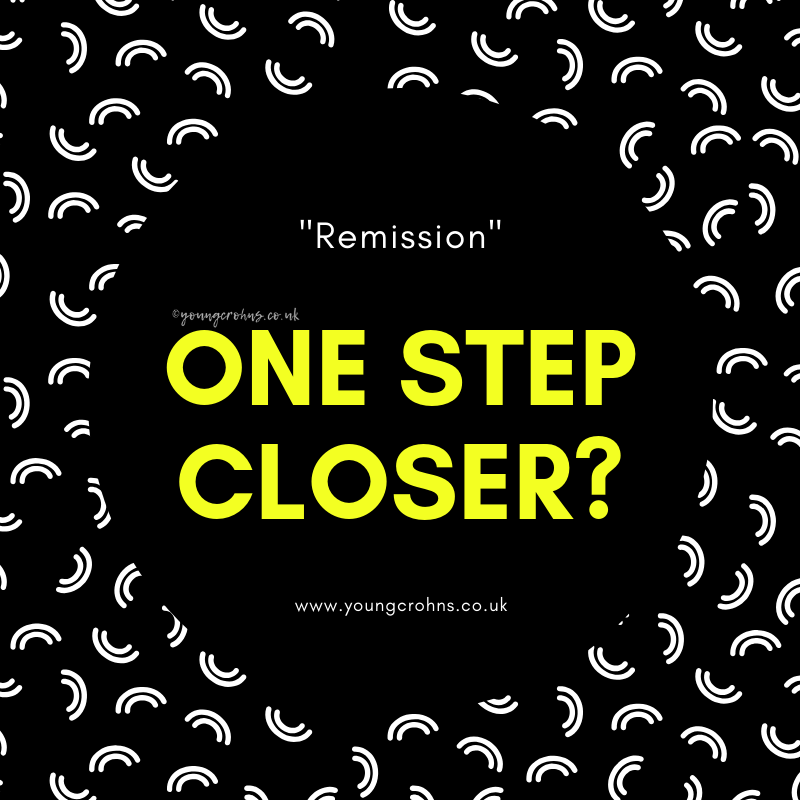
Crohns & Colitis Awareness Week – December 3rd: IBD and Mental Health
Part of the week of daily blogs for #crohnsandcolitisawarenessweek Read the entire week here.
 There, I said it.
There, I said it.
Once you say it outloud, it’s like duh of course it does but that is as far some go. It’s sort of expected for something some internal to affect your mind. And whilst that’s good to recognise, more needs to be done. If there is counselling for a cancer diagnosis, why is there nothing similar for IBD diagnosis?
I appreciate and understand that a cancer diagnosis is a devastating blow and comes suddenly and swiftly for some. But, in a smilier vein, so does IBD. And as we know, IBD is currently incurable. We deal with this illness for our lives; for some its a daily battle, for others its acutely dealt with. But the underlining fact is IBD and mental health need more.
More what exactly?
More support.
More understanding.
Better recognition.
One thing I’ve become aware of in the last couple of years – as my IBD settled down after ostomy surgery and I got a new, full time job and relocated – is that mental health is just as important as physical health. If I am treated for a phsyical aliment, why am I not treated for a mental one too?
Is it because we don’t understand or recognise mental health issues in people with chronic or invisible illness? Or is it a lack of awareness towards those with chronic illness that we – as a group of patients – don’t see mental health as part of our physical health? I admit, it’s very hard to accept a ‘label’ of a mental health diagnosis because it’s another thing to have. And whilst that came with some initial shame and embarassement, it’s being able to see others talking about it – both chronic illness and mental health as well as just mental health – that I appreciate that what I am experiencing is not abnormal or uncommon.
And once you find that it’s quite common, it makes you want to talk more; or at least it did in my case.
I was diagnosed with depression and GAD this year. I take antidepressants and whilst I was nervous about taking a medication to ‘control’ my disease, it was my GP explaining what antidepressants do and why I needed them to make me realise what was going on. Knowing that, and armed with more information since, I’ve been able to identify triggers for my symptoms and I’ve become more open to exploring my feelings as well as developing mechanisms to help me get through periods of low mood.
One of my favourite advocates for Mental Health has been Hattie Gladwell. She gives an honest and frank insight into her own mental health and is currently writing self funded book about the subject. She also has Ulcerative Colitis, used to live with a stoma; I can relate on many many levels.
Follow Hattie on Twitter here. Pledge towards her book “Girl, Unwired” here.
Also a good source of knowledge – including lots of facts and figures is the wonderful Dr Tiff Taft. She has a wonderful Twitter profile where she has been recently sharing lots of IBD and Mental Health titbits. Not only is she a Clinical Psychologist but she also has IBD too. She knows what she is talking about!
Follow the #IBDMentalHealth hashtag on Twitter here. Follow Dr Tiffany Taft on Twitter here.
Do you have any questions or queries? Or just want to share your own experiences? You can leave me a reply here or leave comments via my social media accounts – on Twitter, find my blog page on Facebook and over on Instagram

Sources:
Further Reading:




1 Comments
Crohn's and Colitis Awareness Week •
07/12/2021 at 09:00
[…] December 1st: What is IBD? Crohns & Colitis Awareness Week – December 2nd: IBD Stigma Crohns & Colitis Awareness Week – December 3rd: IBD and Mental Health Crohns & Colitis Awareness Week – December 4th: Fatigue Crohns & Colitis […]